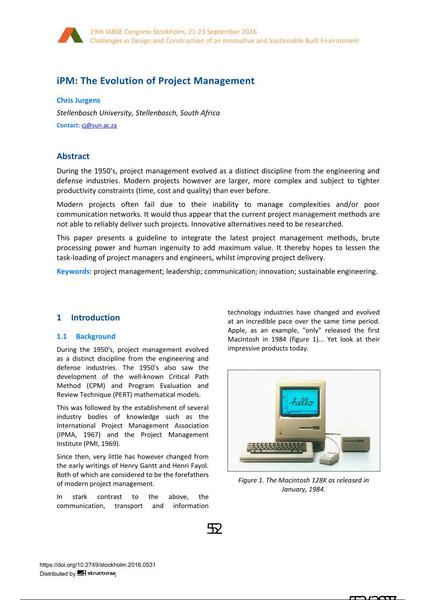iPM: The Evolution of Project Management

|
|
|||||||||||
Détails bibliographiques
| Auteur(s): |
Chris Jurgens
(Stellenbosch University, Stellenbosch, South Africa)
|
||||
|---|---|---|---|---|---|
| Médium: | papier de conférence | ||||
| Langue(s): | anglais | ||||
| Conférence: | IABSE Congress: Challenges in Design and Construction of an Innovative and Sustainable Built Environment, Stockholm, Sweden, 21-23 September 2016 | ||||
| Publié dans: | IABSE Congress Stockholm, 2016 | ||||
|
|||||
| Page(s): | 552-557 | ||||
| Nombre total de pages (du PDF): | 6 | ||||
| Année: | 2016 | ||||
| DOI: | 10.2749/stockholm.2016.0531 | ||||
| Abstrait: |
During the 1950's, project management evolved as a distinct discipline from the engineering and defense industries. Modern projects however are larger, more complex and subject to tighter productivity constraints (time, cost and quality) than ever before. Modern projects often fail due to their inability to manage complexities and/or poor communication networks. It would thus appear that the current project management methods are not able to reliably deliver such projects. Innovative alternatives need to be researched. This paper presents a guideline to integrate the latest project management methods, brute processing power and human ingenuity to add maximum value. It thereby hopes to lessen the task-loading of project managers and engineers, whilst improving project delivery. |
||||
| Mots-clé: |
ingénierie durable innovation
|
||||
